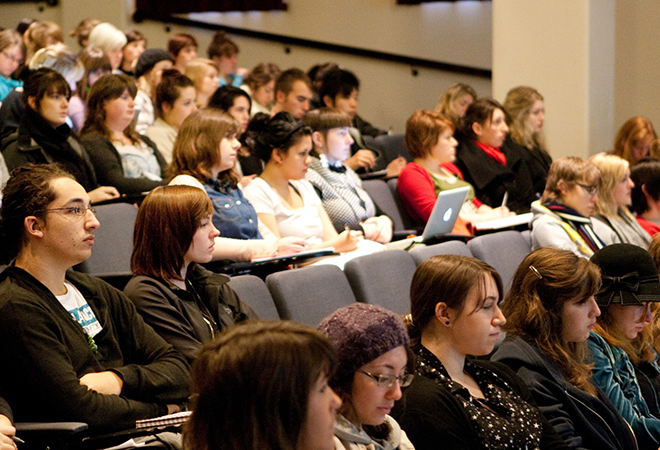
Why lecturers use exemplars and how they use them
Status
Completed: 30 November 2017
Project Details
A two-year project completed in 2018, undertaken by The University of Auckland, to explore lecturers’ understandings about and use of exemplars and to canvas why lecturers in the Faculty of Education and Social Work at the University of Auckland use exemplars and how they use them.
Aims:
The main aims of the project were to:
- discover how and why lecturers use exemplars in their teaching
- identify the issues and challenges associated with implementing the use of exemplars
- form a group of 'lead' practitioners interested in critical reflection on and improvement of exemplar use.
Methodology:
Utilising a mixed methods approach and informed by an interpretive methodology, data was gathered using the following methods:
- anonymous questionnaire sent to all educators in the faculty regarding their perception and use of exemplars
- individual semi-structured interviews with educators who currently use exemplars in their undergraduate and post-graduate courses to discuss why and how they use exemplars, including challenges and issues associated with use
- use of purposive criteria drawn from the literature to analyse interview transcripts and identify educators whose ideas most closely reflect ‘best practice’
- observation in teaching sessions as educators use exemplars with their students – field notes and collection of exemplars and other relevant artefacts
- a second individual semi-structured interview with the educators to discuss aspects of the class observations.
Team

Dr Eleanor Hawe
Project Leader
The University of Auckland
Dr Helen Dixon
The University of Auckland
Dr Richard Hamilton
The University of AucklandStatus
Funding
$25,635.00 (excl GST)
Key Findings
The key findings from the project included:
- Overwhelmingly, lecturers in the study recognised the value in using exemplars to support student learning. They realised that notions of quality, critical to assessment success, were often tacitly held inside a lecturer’s head, hidden from students and/or open to interpretation. To address this, lecturers had developed both an awareness and appreciation of the unique role exemplars can play in regard to developing students’ understandings of the nature of the task and what constitutes quality.
- Lecturers’ exemplar practice was to a certain degree reflective of their understanding of the role that emotions play in learning. Lecturers’ awareness that emotions have an impact on student commitment, motivation and their overall outcomes influenced not only their selection of exemplars but also the way in which they were used.
- While not always overtly expressed, lecturers’ overarching aim in using exemplars was to support students’ successful completion of an assessment task. Lecturers recognised that for students to do so, they needed both evaluative knowledge and expertise and productive knowledge and expertise.
Key Recommendations
The project identified a number of potential projects for future research:
A more diverse range of faculties and contexts | There is a need for similar projects to be conducted in faculties and tertiary contexts other than Education. Locating the research in a diverse range of faculties and contexts would contribute to our understanding of how and why lecturers use exemplars. Such research would also provide additional insights into whether or not there are contextual or disciplinary differences that impact on their use.
Use of exemplars in performance-based disciplines or in the sciences | To date, the research agenda has focused on the use of exemplars to improve the quality of students’ written work, yet there are many disciplines that require students to go beyond the written word to demonstrate their competence. How exemplars are used in performance-based disciplines or in the sciences would extend our understanding of how a range of discipline-specific artefacts and associated practices might be used to support the development of students’ evaluative and productive capabilities.
Classroom observations | Observations undertaken within the naturalistic setting of the ‘classroom’ provide unique insights into practice that cannot be captured by any other means. Undertaken in a principled manner, observations enable researchers to attend to a selective set of phenomena. Studies that utilise observational methods, capturing the dialogue between and among lecturers and students, would make a valuable contribution to the field.
Reasons for the non-use of exemplars | A study looking at reasons for the non-use of exemplars is a further possibility – this would provide us with a fuller understanding of lecturers’ motives, beliefs and concerns, and whether their non-use is due to reluctance or resistance. It could also provide insights into the best ways in which lecturers could be supported to incorporate exemplars into their practice.
A research report prepared by Eleanor Hawe, Helen Dixon and Richard Hamilton.
(PDF, 1.17 MB, 89-pages).
- 17 February 2018